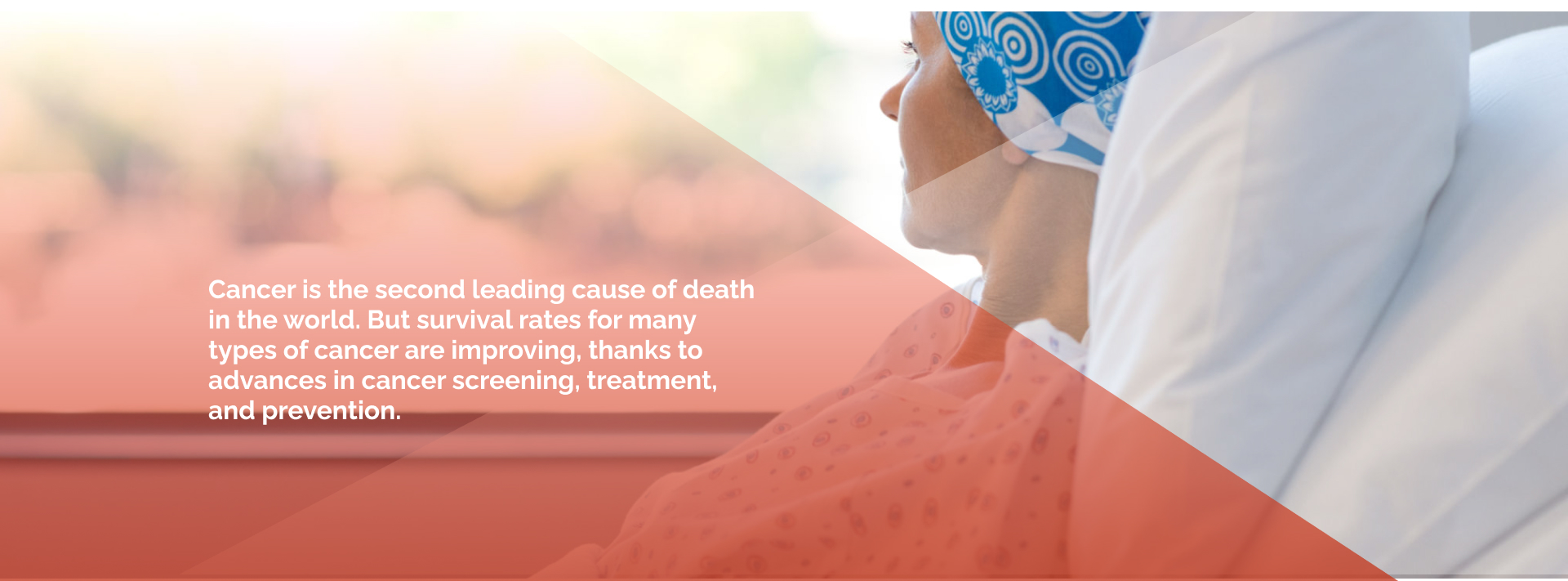YAŞAM Oncology Center
Cancer refers to any of a number of diseases that divide uncontrollably and disrupt normal body tissue, causing the development of abnormal cells. Because of cancer can spread throughout your body, it can affect many organs.
Symptoms
The signs and symptoms caused by cancer will vary depending on which part of the body it affects. Some common signs and symptoms associated with cancer but not specific to cancer include:
- A lump or area of thickening that can be felt under the skin
- Undesirable weight changes
- Changes in the skin such as yellowing, darkening or redness, non-healing sores or changes in existing moles
- Changes in bowel or bladder habits
- Persistent cough or difficulty breathing
- Difficulty swallowing
- Hoarseness
- Persistent indigestion or discomfort after eating
- Persistent, unexplained muscle or joint pain
- Persistent, unexplained fever or night sweats
- Unexplained bleeding or bruising
Treated Cancers in Our Center
- Bladder cancer
- Glioma
- Breast cancer
- Colorectal cancer
- Esophageal cancer
- Gynecological Cancers
- Head and neck cancer
- Kidney cancer
- Liver cancer
- Lung cancer
- Lymphoma
- Melanoma
- Multiple Myeloma
- Non-melanoma skin cancer
- Pancreatic cancer
- Prostate cancer
- Sarcoma
- Bone cancer
- Testicular cancer
When to See a Doctor
Make an appointment with your doctor if you have any persistent symptoms that you notice yourself.
If you don't have any signs or symptoms but are concerned about your cancer risk, share your concerns with your doctor.
Ask which cancer screening tests and procedures are right for you.
Risk factors
Your Age
Although more common in older adults, cancer is not an adult-only disease and can be diagnosed at any age.
Your Habits
Certain lifestyle choices increase your cancer risk. Smoking, excessive alcohol consumption, overexposure to the sun, obesity, and polygamous sex without protection can increase your risk of developing cancer. To reduce your cancer risk, you should change some of your habits.
Your Health Conditions
Certain chronic health conditions, such as ulcerative colitis, can significantly increase your risk of certain cancers.
Your Environment
Your physical environment may contain elements that may increase your risk of cancer. Even if you don't smoke, being in places where people smoke or exposure to polluted air and radiation is also a risk factor.
Take Action Against Cancer
- Quit smoking.
If you smoke, quit. Smoking is linked not only to lung cancer but also to several different types of cancer. By quitting smoking today, you can reduce your risk of cancer in the future.
- Avoid excessive sun exposure.
Harmful ultraviolet (UV) rays from the sun can increase your risk of skin cancer. You can reduce your exposure to the sun by staying in the shade, wearing protective clothing, or applying sunscreen.
- Eat healthily.
Choose a diet rich in fruits and vegetables. Prefer whole grains and lean protein. Limit your processed meat consumption.
- Exercise.
Regular exercise will reduce your risk of cancer. Aim for at least 30 minutes of exercise each day.
- Stay at a healthy weight.
Being overweight or obese can increase your risk of cancer. A healthy diet and regular exercise can help you reach and maintain a healthy weight.
- Limit your alcohol consumption.
Keep your alcohol consumption in moderation.
- Get a check-up.
By having regular check-ups depending on your risk factors, you can take precautions by recognizing your possible diseases at an early stage with early diagnosis.
- Learn about vaccines.
You can be vaccinated for hepatitis B, which increases the risk of liver cancer, and HPV, which increases the risk of cervical cancer.
Multidisciplinary Team
Our team of medical oncologists, radiation oncologists, nuclear medicine specialists, hematology specialists, surgical oncologists, gynecological oncologists and surgeons treat all our patients specially.


